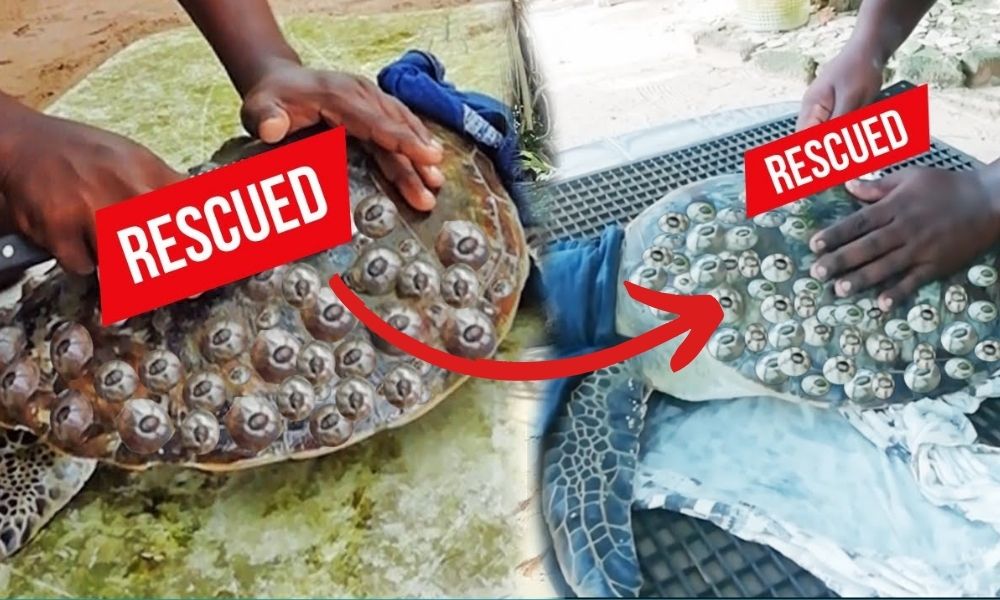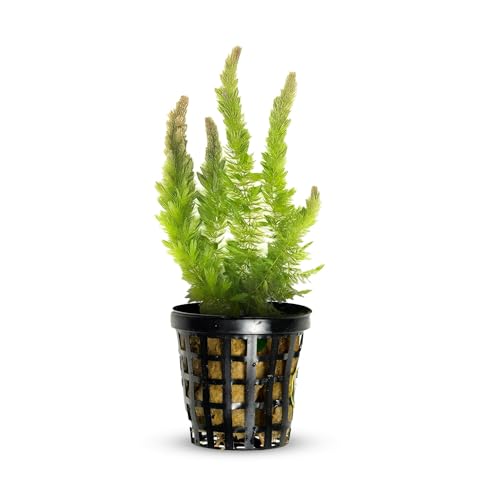To know if your turtle is healthy, look for signs of clear eyes, smooth skin, and a strong appetite. A healthy turtle will also demonstrate active swimming and basking behaviors.
Regular veterinary check-ups are essential to ensure your pet’s overall well-being and to address any potential health issues promptly. Proper temperature, lighting, and a well-balanced diet are important factors in maintaining optimal turtle health. By observing these indicators and providing appropriate care, you can keep your turtle happy and healthy for years to come.

Signs Of A Healthy Turtle
A healthy turtle is crucial to ensure its long-term well-being. As a pet owner, it’s essential to be able to recognize the signs of a healthy turtle to ensure you’re providing the proper care. Here are some key indicators to watch out for:
Active Behavior
A healthy turtle will exhibit active behavior, actively moving around its enclosure. It will swim energetically and explore its surroundings. An active turtle indicates good health and vitality.
Clear Eyes And Skin
A turtle with clear, bright eyes signifies good health. The eyes should be free from discharge, redness, or cloudiness. Similarly, the skin should be smooth and without any lesions or ulcers. Healthy turtles have vibrant skin with no signs of flaking or discoloration.
Eating And Digestion
A healthy turtle will have a hearty appetite and exhibit regular feeding habits. It will actively seek out and consume food. Additionally, pay attention to its digestion. A healthy turtle will pass firm, well-formed stools.
Normal Breathing
Observe your turtle’s breathing pattern. It should breathe effortlessly and without any signs of labored breathing or wheezing. Healthy turtles have clear airways, allowing for normal respiration.
Healthy Shell
The shell is an essential part of a turtle’s body. A healthy shell is smooth, without any cracks, dents, or soft spots. Additionally, the coloration should be uniform, without any significant discoloration or unusual growths.

Common Health Issues
Ensuring the health and well-being of your pet turtle is crucial for their longevity and happiness. While turtles are generally hardy creatures, they can sometimes be prone to certain health issues. Being aware of these common health problems and knowing how to identify them is key to prompt treatment and a long, healthy life for your beloved shelled friend.
Shell Rot
One of the most concerning health issues a turtle can face is shell rot. Shell rot, also known as shell disease, occurs when bacteria or fungi infect the shell, leading to its deterioration. This condition is often caused by poor water quality or inadequate cleanliness of the turtle’s habitat.
- Soft or discolored spots on the shell
- Foul odor emanating from the shell
- Peeling or flaking shell
- Visible signs of infection such as redness or swelling
If you suspect your turtle may have shell rot, it’s crucial to seek veterinary care as soon as possible. The veterinarian will likely prescribe topical or oral medications to combat the infection. Additionally, ensuring clean and properly maintained water conditions, including regular tank cleanings, can help prevent shell rot.
Respiratory Infections
Turtles are susceptible to respiratory infections, which can be caused by both bacteria and viruses. These infections typically result from poor environmental conditions, inadequate heating, or prolonged exposure to cold temperatures.
- Labored breathing or wheezing
- Excessive discharge from the nose or mouth
- Lethargy or lack of appetite
- Swelling or puffiness around the neck or face
If you suspect your turtle has a respiratory infection, consulting a veterinarian is crucial for proper diagnosis and treatment. They might prescribe antibiotics or antiviral medications to combat the infection. To prevent respiratory infections, maintain stable and appropriate temperature and humidity levels in your turtle’s habitat.
Poor Nutrition
Providing a balanced and nutritious diet is essential for your turtle’s overall health. Poor nutrition can lead to a weakened immune system, stunted growth, metabolic bone disease, and other health complications.
- Shell deformities or softening
- Lethargy or decreased activity levels
- Poor shell and skin condition
- Weight loss or lack of appetite
Consulting with a veterinarian or a reptile nutritionist can help ensure your turtle receives a proper diet. They may recommend a balanced combination of commercial turtle pellets, fresh vegetables, and occasional live or frozen prey. Providing a calcium supplement and proper UVB lighting is also important for preventing nutritional deficiencies.
Parasites
Turtles, like many other animals, can be vulnerable to various parasites, including internal worms and external ectoparasites. Parasites can negatively affect a turtle’s overall health and can be transmitted through contaminated water or food sources.
- Loss of appetite or weight loss
- Lethargy or decreased activity levels
- Presence of worms in the feces
- Visible external parasites on the shell or skin
If you suspect your turtle has parasites, a veterinarian can perform a fecal examination and prescribe appropriate deworming medications. To prevent parasite infestations, maintain clean and hygienic housing conditions, and provide your turtle with proper nutrition to boost their immune system.

Creating A Healthy Environment
Ensuring your turtle’s health involves observing its behavior, appetite, and shell condition. Healthy turtles are active, have clear eyes and nostrils, and a smooth shell with no lumps or discolouration. Regular veterinary check-ups can also help maintain your turtle’s well-being.
Creating a Healthy Environment
Proper Tank Setup
One of the primary aspects of ensuring your turtle’s health is creating a suitable tank setup. Turtles need a spacious and well-maintained tank that replicates their natural habitat. Here are a few key considerations:
1. Tank Size: Make sure your turtle has enough room to move around comfortably. A general rule of thumb is to provide 10 gallons of water per inch of shell length for small turtles, and even more for larger ones.
2. Substrate: Choose a substrate that is safe for your turtle and easy to clean. Avoid using gravel, as it can be ingested and cause digestive issues. Favor options like aquarium sand or river rocks.
3. Hiding Areas: Provide hiding spots like rocks or artificial caves where your turtle can retreat and feel secure. This will help reduce stress levels, promoting overall health.
Water Quality
Maintaining proper water quality is crucial for your turtle’s well-being. Turtles are highly susceptible to bacterial and fungal infections, and clean water helps prevent these issues. Consider the following:
1. Filtration System: Invest in a quality filtration system that can handle the tank size and gallon capacity. A good filter will remove debris, toxins, and pollutants from the water, keeping it healthy and clear.
2. Water Changes: Regularly change a portion of the water, around 25-30%, every two weeks to maintain optimum water quality. This will help remove excess waste and prevent the buildup of harmful substances.
3. Chlorine Removal: Always use a dechlorinating agent in tap water before adding it to the tank. Chlorine and other chemicals present in tap water can be harmful to turtles.

Temperature and Lighting
Turtles are ectothermic creatures, meaning they rely on their environment to regulate their body temperature. Maintaining appropriate temperature and lighting conditions in their tank is crucial. Consider the following:
1. Basking Spot: Provide a warm basking area where your turtle can dry off and regulate its body temperature. Use a heat lamp or ceramic heater to create a basking spot with a temperature range of 85-90°F.
2. UVB Lighting: Turtles require access to UVB light to synthesize vitamin D3, essential for calcium metabolism and proper shell growth. Use a UVB lamp specifically designed for reptiles and replace the bulb as recommended by the manufacturer.
3. Thermometer: Use a reliable thermometer to monitor the temperature in your turtle’s tank. This will help you ensure that the environment remains within the recommended range for your turtle’s specific species.
Nutritious Diet
A well-balanced and nutritious diet is crucial for your turtle’s health. Providing a variety of foods that mimic their natural diet in the wild will help ensure they receive all the essential nutrients. Consider the following:
1. Protein: Offer quality protein sources like commercial turtle pellets, earthworms, bloodworms, and insects. These will help promote growth and overall muscle development.
2. Leafy Greens: Incorporate a variety of leafy greens, such as kale, spinach, and romaine lettuce, into your turtle’s diet. These provide essential vitamins and minerals.
3. Calcium and Vitamin Supplements: Dust your turtle’s food with a calcium supplement to support healthy shell development. Additionally, provide a multivitamin supplement to ensure they receive all the necessary vitamins.
By focusing on creating a healthy environment through proper tank setup, maintaining water quality, providing suitable temperature and lighting, as well as offering a nutritious diet, you will be well on your way to ensuring your turtle’s overall health and well-being.

Regular Health Monitoring
Regularly monitoring the health of your turtle is crucial to ensure its well-being. By observing your turtle, scheduling veterinary checkups, and keeping accurate records, you can stay on top of their health and catch any potential issues early on. Let’s dive deeper into each aspect of regular health monitoring.
Observation
Observing your turtle’s behavior, appetite, and physical appearance can provide valuable insights into its overall health. Here are some key factors to look out for:
- Behavior: Watch for any changes in activity levels, such as increased lethargy or aggression.
- Appetite: Monitor your turtle’s eating habits; a sudden loss of appetite may be a cause for concern.
- Physical appearance: Regularly check your turtle’s shell, skin, eyes, and limbs for any abnormalities, such as wounds, swelling, or discharge.
If you notice any unusual behaviors or physical changes, it’s important to consult with a veterinarian for a thorough examination.
Vet Checkups
Scheduling regular veterinary checkups for your turtle is crucial to ensuring its ongoing health and well-being. A qualified reptile veterinarian can perform a thorough examination and provide expert advice on proper care. During these checkups, your veterinarian may:
- Conduct physical exams: Your vet will carefully examine your turtle’s shell, limbs, eyes, mouth, and respiratory system to detect any potential issues.
- Perform diagnostic tests: In certain cases, your veterinarian may recommend blood tests, fecal exams, or X-rays to gain a more comprehensive understanding of your turtle’s health.
- Offer dietary and habitat recommendations: Your vet can provide specific advice on nutrition, temperature, lighting, and enclosure setup to ensure an optimal environment for your turtle’s well-being.
Regular veterinary checkups serve as a proactive measure to identify and address any potential health concerns early on, leading to a healthier and happier turtle.
Record Keeping
Keeping accurate records of your turtle’s health and care is an essential part of regular health monitoring. Here are some key aspects to document:
- Feeding schedule: Note down the types of food, quantities, and feeding frequency to ensure your turtle receives a balanced diet.
- Growth milestones: Track your turtle’s growth by measuring its size and weight at regular intervals.
- Environmental conditions: Record the temperature, humidity, and lighting parameters of your turtle’s enclosure to ensure an optimal habitat.
- Medical history: Document any vet visits, diagnoses, treatments, and medications administered to your turtle.
By maintaining detailed records, you can easily identify patterns, track progress, and provide accurate information to your veterinarian when necessary.

Final Tips For Turtle Wellness
Handling And Stress Reduction
When handling your turtle, always do so gently and with care to reduce stress. Avoid sudden movements and loud noises, as these can startle your turtle and may lead to stress-related health issues. It’s important to create a calm and quiet environment to help your turtle feel secure and at ease.
Quarantine For New Turtles
When bringing a new turtle into your home, it’s crucial to quarantine them for a period of time to prevent the spread of potential illnesses to your existing turtles. Keep the new turtle in a separate enclosure with its own food and water dishes, and monitor their health closely before introducing them to the existing turtle community.
Interaction With Other Pets
When allowing your turtle to interact with other pets, such as dogs or cats, make sure to supervise their interactions closely. Some pets may view turtles as prey and attempt to harm them, so it’s vital to ensure the safety and well-being of your turtle during these interactions.
Frequently Asked Questions On How To Know If Your Turtle Is Healthy?
How Do I Know If My Turtle Is Unhealthy?
To determine if your turtle is unhealthy, look for signs such as lack of appetite, swollen or abnormal growths, discolored skin, shell damage, and unusual behavior. Regularly check its eyes, nose, mouth, and shell for any signs of infection or injury.
Consult a vet if you notice any concerns.
What Does A Healthy Turtle Look Like?
A healthy turtle appears active, with bright eyes, smooth shell, and strong limbs. It has clear nostrils, a balanced appetite, and clean skin free from lesions or parasites. Choosing a proper diet and habitat maintenance are vital for keeping your turtle healthy.
How Do I Make Sure My Turtle Is Healthy?
To ensure your turtle’s health, follow these steps: 1. Provide a balanced diet with a variety of foods. 2. Create a suitable habitat with proper temperature and lighting. 3. Keep the tank clean by regularly changing the water and removing waste.
4. Monitor your turtle’s behavior and appearance for any signs of illness. 5. Schedule regular check-ups with a reptile veterinarian.
How Do You Know If Your Turtle Is Happy?
You can tell if your turtle is happy by noticing signs like an active and alert behavior, healthy appetite, bright and clear eyes, and a clean shell. Additionally, if your turtle basks under a heat lamp, explores its environment, and swims comfortably, these are all indications that it is content.
How Can I Tell If My Turtle Is Healthy?
Regularly check for clear eyes, smooth shell, and active behavior to ensure health.
Conclusion
Understanding the signs of a healthy turtle is crucial for its overall well-being. By regularly observing its behavior, appetite, appearance, and habitat, you can ensure that your turtle remains happy and thriving. Remember to provide a balanced diet, maintain clean and suitable living conditions, and schedule regular check-ups with a reptile veterinarian.
With proper care and attention, your turtle can enjoy a long and healthy life by your side.





Leave a Reply